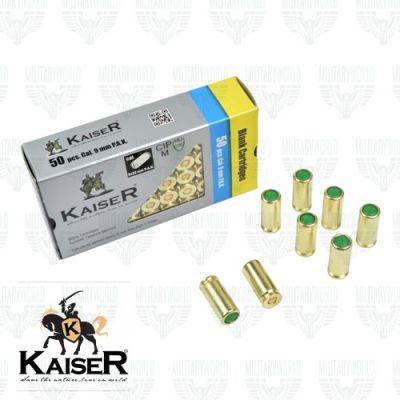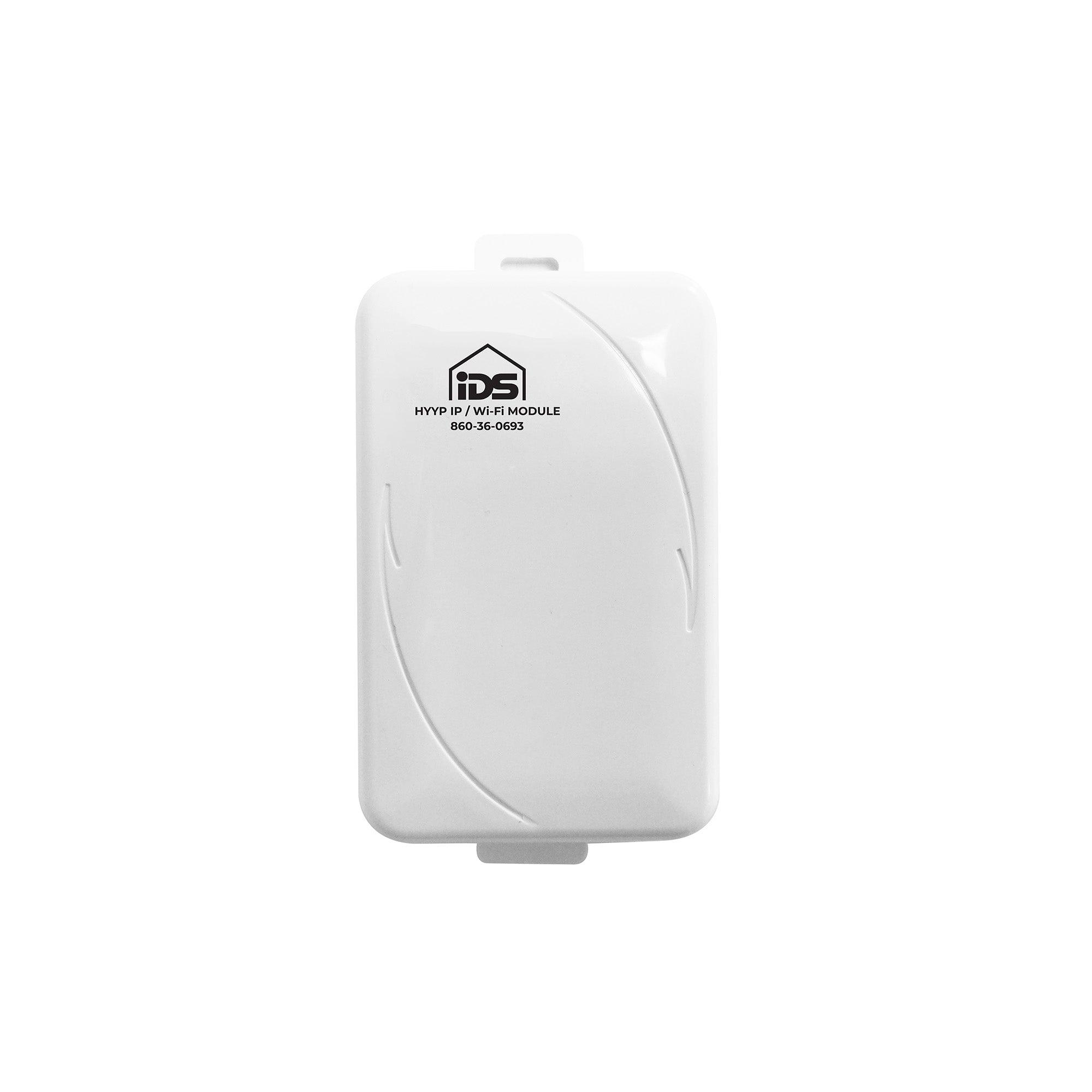Baofeng UV5-R Two Way Radio: Reliable VHF/UHF Transceiver
T Baofeng UV-5R Two Way Radio is a radio station that has gained wide acceptance and a lot of positive reviews being, perhaps, one of the most functional radios in the budget price segment. Today we will get to know her better.
In the beginning, I will make a reservation that I am in no way a serious radio amateur, therefore, when purchasing a radio station, I was primarily interested in the price and the availability of rich functionality that you can afford for this price. When purchasing amateur radios for use during airsoft events and field trips, my choice fell on the Baofeng UV-5R because for relatively little money it offers the following range of features:
- Simultaneous operation in VHF / UHF frequency ranges (130-172 Mhz / 400-520 Mhz, respectively).
- Ability to simultaneously find two frequencies from different bands and quickly switch between them.
- Maximum outgoing power: 8W.
- Voltage: 7.4 V.
- Modulation type: FM (F3E).
- Customizable backlight liquid crystal display.
- Number of channels in memory: up to 128.
- Built-in FM-radio, working with frequencies 65-108 Mhz.
- Built-in LED torch.
- Capacity of the standard Li-Ion battery: 1800 mAh.
- Power saving mode.
- Duration of work: up to 24 hours.
- Dimensions: 10 cm x 5.2 cm x 3.2 cm (height / width / depth).
- Weight: 250 g.
- Wide basic equipment.
Let's move on from short descriptions to direct acquaintance.
Description of the complete set Baofeng UV-5R
UV-5R Dual Band (VHF/UHF) Analog Portable Two-Way Radio
(136-174hz VHF /400-480 MHz UHF Dual-Band DTMF CTCSS DCS FM Ham FM Transciever)
If unsure about the Baofeng UV-5R, its functions, limitations and what it is capable of, then please see the video embedded right at the bottom.
The Baofeng UV-5R Radio Background
Baofeng Introduced the UV-5R Dual Band, Dual Display radio in 2012. Since its introduction the Baofeng UV-5R has seen a massive success. The Baofeng UV-5R has seen 2 major changes since its launch with the second generation being signified by BFB297 Firmware (2nd Gen.) in early 2013 and the N5R firmware tweak in August of 2014.
There are several cosmetic variants of the Baofeng UV-5R. These variants have no differences from the UV-5R besides their cosmetic design along with the possible removal of the ‘Band Key’ (no longer required in Gen. 2).
Variations include the: UV-5R v2+, UV-5RA, UV-5RE, UV-5R+ (Plus), along with several other lesser produced variants. Some of these variations may also no longer work with case specific accessories such as the original UV-5R batteries.
Late in 2013, the UV-5R also included a new variant generation with the inverted (privacy) display series; with the introduction of the BF-F8+ and its own cosmetic variants (such as the GT-3 and 997-S).
Finally, in the fall of 2014, the UV-5R saw the introduction to its successor the 3rd. Generation BF-F8HP.
Features – Original 2012 Product Launch (1st Gen.)
High / Low Power Settings (4W/1W) Programmable Amateur Radio
Frequency Range: 65-108 MHz (Only commercial FM radio reception) VHF: 136-174 MHz(Rx/Tx). UHF: 400-520 MHz(Rx/Tx)
Customize Channel Names, the Boot Display and More by Using the PC03 FTDI Programming Cable
1500mAh Battery (1800mAh Label); Broadband (Wide) 25khz / Narrowband (Narrow) 12.5khz Selectable
AUTO Keypad Lock, Dual Band, Dual Display and Dual Standby
The Baofeng UV-5R is a compact hand held transceiver providing 4 watts in the frequency range of 136-174 MHz and 400-480MHz (520MHz later versions). It is a compact, economical HT that includes a special VHF receive band from 65 – 108 MHz which includes the regular FM broadcast band. Dual watch and dual reception is supported. You get up to 128 memories. Other features include: selectable wide/narrow, battery save function, VOX, DCS/CTCSS encode, key lock and built in flashlight. Selectable frequency steps include: 2.5, 5, 6.25, 10, 12.5 and 25 kHz. RF power may be selected at 4 or 1 watts. This radio comes with an SMA-Female antenna, flexible antenna, BL-5 Li-ion battery (7.4V 1500 mAh (1800mAh label)), belt clip, wrist strap, AC adapter (8.4V 600ma) and drop-in charging tray. This radio requires the PC03 FTDI programming cable.
Features – Updated Late 2013 Product Launch (2ND Gen.)
Radio Frequency IC:
- Upgraded SQ to enhance the anti-interference ability
- RDA1846S adds an new tail tone elimination function, when transmitting and receiving signal between 50Hz with 55Hz
- Improves the receiver AGV switching noise when signal strength changes severe
Frequency-Modulated Receiver Chip:
- The RDA5802N has a powerful low-IF digital audio processor, which makes it have the most optimum sound quality with varying reception conditions
Power Amplifier IC :
- Low crossover distortion
- Low quiescent circuit current
N5R Firmware (August 2014)
- Hold ‘0’ – Display Voltage
- Removes Cloning Capabilities (Due to Several Firmware Edits)
VERSATILE RADIO FOR AMATEUR USE
The Baofeng UV-5R is legal for use on amateur frequencies. The UV-5R is able to Transmit on Narrowband (12.5kHz) and Wideband (25kHz).
Dual Watch Receiver
The Baofeng UV-5R has one built-in receiver but can “watch” two channels (semi duplex). Monitor two different frequencies (even on different bands (VHF/UHF)) and the radio will monitor both frequencies giving priority to the first station to receive an incoming call.
FM Broadcast Station
You can listen to the FM Broadcast radio, while still monitoring your radio frequencies in the background. Any incoming call will be given priority insuring you never miss an important call while listening to the radio.
Group Tones supported
The Baofeng UV-5R supports the most common Analog Tones. It supports CTCSS, DCS, and DTMF calling methods. Set-up your calling methods to call by group tones. Tone calling (private line) is required by most repeater applications and the UV-5R supports the latest standards
The Baofeng UV-5R can even send DTMF tones. This allows for sending ANI (Caller ID) or remote commands that require DTMF tones
Alias Models – Cosmetically Different only
UV-5R5
UV-5Rv2+
UV-5RA
UV-5RE
UV-5R+ (Plus)
Customize Your Operation with channels, Programmable Buttons, and more!
You can program your UV-5R exactly how you want it. There are 128 programmable memory channels. You can add or remove channels from scanning list using the free computer software. You can give channels alphanumeric names, using a computer. The radio has 2 power levels (5 watt maximum), allowing you to choose how far you can communicate. You can set VFO limits using the CHIRP software. You can easily program from a PC to set-up the radio to operate exactly as needed.
What’s In the Box?
- Baofeng UV-5R
- 1500mAh Battery
- Antenna
- Power Adapter
- Earpiece
- Belt Clip
- Hand Strap
- Battery Charger
- User Manual
- Features
25KHz/12.5KHz Switchable (Wide/Narrow Band)
FM Radio (65.0MHz-108.0MHz)
Large Inverted LCD Display
LED Flashlight
High /Low RF Power Switchable
VOX
50 CTCSS/ 104 DCS Tones
Tone searching/scanning
Dual standby
PC programmable
Transmitter time-out timer (TOT)
Busy channel lock-out (BCLO)
***
Further reading;
Using the Baofeng 5 R (weprepare.co.za)
Set up a Baofeng UV-5R repeater system | RadioReference.com Forums
Baofeng UV-5R manual programming ▶ Learn in 1 minute (lowcosthamradio.com)
UV-5R SPECIFICATIONS
Frequency range:
|
Operating parameters; [TX] [RX] |
136 – 174MHz, 400 – 520MHz 136 – 174MHz, 400 – 520MHz, 68-108MHz (FM Broadcast) |
|
Channel Capacity: |
128 Channels |
|
Channel Spacing |
25KHz (wide band)12.5KHz (narrow band) |
|
Sensitivity |
=0.25µV (wide band) =0.35µV (narrow band) |
|
Operation Voltage |
7.4V DC ±20% |
|
Battery: |
3500mAh (NEW HIGH CAPACITY TYPE!) |
|
Frequency step: |
2.5, 5, 6.25, 10, 12.5, 20, 25, 30 and 50KHz |
|
Antenna: Antenna Connector: |
SMA-Female / Antenna Impedance: 50O |
|
Accessory Connector: |
Kenwood 2 Pin Standard |
|
Stability: |
±2.5ppm |
|
Output power: |
8W / 1W |
|
Audio Power Output: |
700mW/10% |
Download Programming Software
CHIRP Programming Software (Recommended); Select the Appropriate Version for Your Operating System
Owner’s Manual
Baofeng UV-5R Menu Description
Please have a look at the below and study these carefully. Also feel free to defer back to the beneath, if revision is needed.
|
Menu item (No., designation, name) |
The values |
Comments |
|
00 – SQL (Squelch level) |
0 (min) — 9 (max) |
Noise suppressor opening threshold. At values of 0-3, the walkie-talkie almost constantly makes background noise. 4-6 optimal noise reduction values. |
|
01 – STEP (Frequency Step) |
2,5 / 5 / 6,25 / 10 /12,5 / 25 kHz |
Frequency step in frequency mode when scanning or by pressing the UP & DOWN keys. The default is 25 kHz. It may be necessary to change the step to manually set some frequencies. |
|
02 – TPX (Transmit Power) |
HIGH/LOW |
Transmitter power. For short distances it can be switched to LOW (1 W), but usually does not change from HIGH (5 W). At low power, “L” is displayed on the screen. The power of the transmitter, according to users, is sufficient for distances up to 20 km. in the field, up to 7-10 km. in the forest and about 3 km. in urban areas. |
|
03 – SAVE (Battery Save) |
OFF/1/2/3/4 |
Battery saving level. Displays the number of "sleep" cycles relative to "run" cycles: 1: 1, 2: 1, 3: 1, 4: 1. The higher the value, the longer the battery will last. |
|
04 – VOX (Voice Operated eXchange) |
OFF/0 (max) — 10 (min) |
The sensitivity level of the voice-controlled transmission. Sets the voice volume level at which the transmission will start. When turned on, the display shows "VOX". |
|
05 – W/N (Wideband/Narrowband) |
WIDE/NARR |
Modulation type: wideband WIDE (25 kHz), narrowband NARR (12.5 kHz). In narrowband modulation, “N” is displayed on the screen. |
|
06 – ABR (Display Illumination) |
OFF/ 1-10 |
Backlight auto-off time in seconds. Also, the time after which the radio will return to the FM radio mode, after being interrupted by receiving a signal on the operating frequency. |
|
07 – TDR (Dual Watch/Reception) |
OFF/ON |
Simultaneous tracking of two frequencies (A and B) in the UHF and VHF bands by alternately hopping between frequencies. When a signal appears at one of the frequencies, the jumping ends. The receiver on the frequency of which it was last received becomes active. When this function is enabled, “S” is displayed on the screen. |
|
08 – BEEP (Keypad Beep) |
OFF/ON |
Enable / disable sound identification of keystrokes. |
|
09 – TOT (Transmission Timer) |
15-600 in 15 second increments. |
Transmission timeout, interrupting the broadcast after a set number of seconds. Helps to avoid overheating and clogging of the ether if the PTT button is accidentally pressed. |
|
10 – R-DCS |
See the DCS Tone Chart in your radio manual. |
Sets the digital sub-tone (DCS) for reception. The sound will be heard only if the partner is transmitting with the same subtone for the transmission. They are often used when working through repeaters. |
|
11 – R-CTCS |
See the CTCSS tones table in your radio manual. |
Sets the analog sub-tone (CTCSS) for reception. The sound will be heard only if the partner is transmitting with the same subtone for the transmission. They are often used when working through repeaters. |
|
12 – T-DCS |
See the DCS Tone Chart in your radio manual. |
Sets the digital sub-tone (DCS) for transmission. The sound will be heard only if the partner conducts a reception with the same subtone. They are often used when working through repeaters. |
|
13 – T-CTCS |
See the CTCSS tones table in your radio manual. |
Sets the analog sub-tone (CTCSS) for transmission. The sound will be heard only if the partner conducts a reception with the same subtone. They are often used when working through repeaters. |
|
14 – VOICE (Voice Prompt) |
OFF/ENG/CHI |
Mute / select the English or Chinese voice guidance when pressing the keys. |
|
18 — SC-REV (Scan Resume Method) |
TO/CO/SE |
Scan method, where TO - scan all channels in memory, CO - full range, SE - part of range. If a transmission is detected, scanning will stop. It is this scan that will start when you hold down the “*” button. |
|
21 – MDF-A |
FREQ/CH/NAME |
Adjusts the display for track A in channel mode. Can display: frequency, channel number or name (names for stored channels are set only when programming from a computer). |
|
22 – MDF-B |
FREQ/CH/NAME |
Adjusts the display for track B in channel mode. Can display: frequency, channel number or name (names for stored channels are set only when programming from a computer). |
|
24 – AUTOLK (Keypad Auto Lock) |
OFF/ON |
Enable / disable automatic key lock. |
|
25 – SFT-D |
OFF/+/- |
The direction of the offset of the transmit frequency relative to the receive frequency. Only in frequency mode! Values: OFF - no shift; "+" - the transmission frequency will be higher than the reception frequency; "-" - the transmission frequency will be less than the reception frequency. The “+” or “-” indicator lights up on the screen depending on the selected value. Used in conjunction with menu item 26 - OFFSET when working through repeaters. |
|
26 – OFFSET |
00.000 - 69.990 MHz at 10 kHz steps |
The value of the offset of the transmit frequency from the receive frequency (in MHz). Used in conjunction with menu item 25 - SFT-D when operating via repeaters. |
|
27 – MEMCH |
000 — 127 |
Used to save a channel to a memory location, or change the parameters of an already saved channel. |
|
28 – DELCH |
000 — 127 |
Delete a channel from memory. |
|
29 – WT-LED |
OFF/BLUE/ORANGE/PURPLE |
Disable / select the screen backlight in standby mode. |
|
30 – RX-LED |
OFF/BLUE/ORANGE/PURPLE |
Disable / select the screen backlight in receive mode. |
|
31 – TX-LED |
OFF/BLUE/ORANGE/PURPLE |
Disable / select screen backlight in transmission mode. |
|
32 – AL-MOD (Alarm Mode) |
SITE/TONE/CODE |
Mode of the distress signal sent over the air, transmitted when the “CALL” button is pressed: tone, digital code (set only using a computer and a software cable) |
|
33 – BAND |
VHF/UHF |
Manual range selection. In frequency mode, it allows you to set the frequency range: VHF (136-174 MHz), UHF (400-480 MHz). |
|
34 – TDR-AB |
OFF/A/B |
In two-frequency receive mode (see menu 7 - TDR), set the receiver A or B, which will remain active after receiving a signal on any of the tracks. Values: "OFF" - the receiver with the last incoming signal will become active. |
|
38 — PONMGS |
FULL/MGS |
Displays all screen elements or a message when the radio is turned on. The text of the message is set by flipping letters in alphabetical order. |
|
39 – ROGER (End of Transmission Tone) |
ON/OFF |
Enable / disable the beep at the end of the transfer. A convenient alternative to "welcome". |
|
40 – RESET (Restore to Default Settings) |
Reset settings to default settings (factory settings). |
Browse our Gadgets collection for accessories on the Baofeng Two Way Radios
Product rundown video can be perused here;
https://www.youtube.com/embed/KJ_sSjPmQ08
Also, of interest;
https://www.youtube.com/embed/2sg3RJf1ZEA
Baofeng UV5-R Two Way Radio: Reliable VHF/UHF Transceiver
T Baofeng UV-5R Two Way Radio is a radio station that has gained wide acceptance and a lot of positive reviews being, perhaps, one of the most functional radios in the budget price segment. Today we will get to know her better.
In the beginning, I will make a reservation that I am in no way a serious radio amateur, therefore, when purchasing a radio station, I was primarily interested in the price and the availability of rich functionality that you can afford for this price. When purchasing amateur radios for use during airsoft events and field trips, my choice fell on the Baofeng UV-5R because for relatively little money it offers the following range of features:
- Simultaneous operation in VHF / UHF frequency ranges (130-172 Mhz / 400-520 Mhz, respectively).
- Ability to simultaneously find two frequencies from different bands and quickly switch between them.
- Maximum outgoing power: 8W.
- Voltage: 7.4 V.
- Modulation type: FM (F3E).
- Customizable backlight liquid crystal display.
- Number of channels in memory: up to 128.
- Built-in FM-radio, working with frequencies 65-108 Mhz.
- Built-in LED torch.
- Capacity of the standard Li-Ion battery: 1800 mAh.
- Power saving mode.
- Duration of work: up to 24 hours.
- Dimensions: 10 cm x 5.2 cm x 3.2 cm (height / width / depth).
- Weight: 250 g.
- Wide basic equipment.
Let's move on from short descriptions to direct acquaintance.
Description of the complete set Baofeng UV-5R
UV-5R Dual Band (VHF/UHF) Analog Portable Two-Way Radio
(136-174hz VHF /400-480 MHz UHF Dual-Band DTMF CTCSS DCS FM Ham FM Transciever)
If unsure about the Baofeng UV-5R, its functions, limitations and what it is capable of, then please see the video embedded right at the bottom.
The Baofeng UV-5R Radio Background
Baofeng Introduced the UV-5R Dual Band, Dual Display radio in 2012. Since its introduction the Baofeng UV-5R has seen a massive success. The Baofeng UV-5R has seen 2 major changes since its launch with the second generation being signified by BFB297 Firmware (2nd Gen.) in early 2013 and the N5R firmware tweak in August of 2014.
There are several cosmetic variants of the Baofeng UV-5R. These variants have no differences from the UV-5R besides their cosmetic design along with the possible removal of the ‘Band Key’ (no longer required in Gen. 2).
Variations include the: UV-5R v2+, UV-5RA, UV-5RE, UV-5R+ (Plus), along with several other lesser produced variants. Some of these variations may also no longer work with case specific accessories such as the original UV-5R batteries.
Late in 2013, the UV-5R also included a new variant generation with the inverted (privacy) display series; with the introduction of the BF-F8+ and its own cosmetic variants (such as the GT-3 and 997-S).
Finally, in the fall of 2014, the UV-5R saw the introduction to its successor the 3rd. Generation BF-F8HP.
Features – Original 2012 Product Launch (1st Gen.)
High / Low Power Settings (4W/1W) Programmable Amateur Radio
Frequency Range: 65-108 MHz (Only commercial FM radio reception) VHF: 136-174 MHz(Rx/Tx). UHF: 400-520 MHz(Rx/Tx)
Customize Channel Names, the Boot Display and More by Using the PC03 FTDI Programming Cable
1500mAh Battery (1800mAh Label); Broadband (Wide) 25khz / Narrowband (Narrow) 12.5khz Selectable
AUTO Keypad Lock, Dual Band, Dual Display and Dual Standby
The Baofeng UV-5R is a compact hand held transceiver providing 4 watts in the frequency range of 136-174 MHz and 400-480MHz (520MHz later versions). It is a compact, economical HT that includes a special VHF receive band from 65 – 108 MHz which includes the regular FM broadcast band. Dual watch and dual reception is supported. You get up to 128 memories. Other features include: selectable wide/narrow, battery save function, VOX, DCS/CTCSS encode, key lock and built in flashlight. Selectable frequency steps include: 2.5, 5, 6.25, 10, 12.5 and 25 kHz. RF power may be selected at 4 or 1 watts. This radio comes with an SMA-Female antenna, flexible antenna, BL-5 Li-ion battery (7.4V 1500 mAh (1800mAh label)), belt clip, wrist strap, AC adapter (8.4V 600ma) and drop-in charging tray. This radio requires the PC03 FTDI programming cable.
Features – Updated Late 2013 Product Launch (2ND Gen.)
Radio Frequency IC:
- Upgraded SQ to enhance the anti-interference ability
- RDA1846S adds an new tail tone elimination function, when transmitting and receiving signal between 50Hz with 55Hz
- Improves the receiver AGV switching noise when signal strength changes severe
Frequency-Modulated Receiver Chip:
- The RDA5802N has a powerful low-IF digital audio processor, which makes it have the most optimum sound quality with varying reception conditions
Power Amplifier IC :
- Low crossover distortion
- Low quiescent circuit current
N5R Firmware (August 2014)
- Hold ‘0’ – Display Voltage
- Removes Cloning Capabilities (Due to Several Firmware Edits)
VERSATILE RADIO FOR AMATEUR USE
The Baofeng UV-5R is legal for use on amateur frequencies. The UV-5R is able to Transmit on Narrowband (12.5kHz) and Wideband (25kHz).
Dual Watch Receiver
The Baofeng UV-5R has one built-in receiver but can “watch” two channels (semi duplex). Monitor two different frequencies (even on different bands (VHF/UHF)) and the radio will monitor both frequencies giving priority to the first station to receive an incoming call.
FM Broadcast Station
You can listen to the FM Broadcast radio, while still monitoring your radio frequencies in the background. Any incoming call will be given priority insuring you never miss an important call while listening to the radio.
Group Tones supported
The Baofeng UV-5R supports the most common Analog Tones. It supports CTCSS, DCS, and DTMF calling methods. Set-up your calling methods to call by group tones. Tone calling (private line) is required by most repeater applications and the UV-5R supports the latest standards
The Baofeng UV-5R can even send DTMF tones. This allows for sending ANI (Caller ID) or remote commands that require DTMF tones
Alias Models – Cosmetically Different only
UV-5R5
UV-5Rv2+
UV-5RA
UV-5RE
UV-5R+ (Plus)
Customize Your Operation with channels, Programmable Buttons, and more!
You can program your UV-5R exactly how you want it. There are 128 programmable memory channels. You can add or remove channels from scanning list using the free computer software. You can give channels alphanumeric names, using a computer. The radio has 2 power levels (5 watt maximum), allowing you to choose how far you can communicate. You can set VFO limits using the CHIRP software. You can easily program from a PC to set-up the radio to operate exactly as needed.
What’s In the Box?
- Baofeng UV-5R
- 1500mAh Battery
- Antenna
- Power Adapter
- Earpiece
- Belt Clip
- Hand Strap
- Battery Charger
- User Manual
- Features
25KHz/12.5KHz Switchable (Wide/Narrow Band)
FM Radio (65.0MHz-108.0MHz)
Large Inverted LCD Display
LED Flashlight
High /Low RF Power Switchable
VOX
50 CTCSS/ 104 DCS Tones
Tone searching/scanning
Dual standby
PC programmable
Transmitter time-out timer (TOT)
Busy channel lock-out (BCLO)
***
Further reading;
Using the Baofeng 5 R (weprepare.co.za)
Set up a Baofeng UV-5R repeater system | RadioReference.com Forums
Baofeng UV-5R manual programming ▶ Learn in 1 minute (lowcosthamradio.com)
UV-5R SPECIFICATIONS
Frequency range:
|
Operating parameters; [TX] [RX] |
136 – 174MHz, 400 – 520MHz 136 – 174MHz, 400 – 520MHz, 68-108MHz (FM Broadcast) |
|
Channel Capacity: |
128 Channels |
|
Channel Spacing |
25KHz (wide band)12.5KHz (narrow band) |
|
Sensitivity |
=0.25µV (wide band) =0.35µV (narrow band) |
|
Operation Voltage |
7.4V DC ±20% |
|
Battery: |
3500mAh (NEW HIGH CAPACITY TYPE!) |
|
Frequency step: |
2.5, 5, 6.25, 10, 12.5, 20, 25, 30 and 50KHz |
|
Antenna: Antenna Connector: |
SMA-Female / Antenna Impedance: 50O |
|
Accessory Connector: |
Kenwood 2 Pin Standard |
|
Stability: |
±2.5ppm |
|
Output power: |
8W / 1W |
|
Audio Power Output: |
700mW/10% |
Download Programming Software
CHIRP Programming Software (Recommended); Select the Appropriate Version for Your Operating System
Owner’s Manual
Baofeng UV-5R Menu Description
Please have a look at the below and study these carefully. Also feel free to defer back to the beneath, if revision is needed.
|
Menu item (No., designation, name) |
The values |
Comments |
|
00 – SQL (Squelch level) |
0 (min) — 9 (max) |
Noise suppressor opening threshold. At values of 0-3, the walkie-talkie almost constantly makes background noise. 4-6 optimal noise reduction values. |
|
01 – STEP (Frequency Step) |
2,5 / 5 / 6,25 / 10 /12,5 / 25 kHz |
Frequency step in frequency mode when scanning or by pressing the UP & DOWN keys. The default is 25 kHz. It may be necessary to change the step to manually set some frequencies. |
|
02 – TPX (Transmit Power) |
HIGH/LOW |
Transmitter power. For short distances it can be switched to LOW (1 W), but usually does not change from HIGH (5 W). At low power, “L” is displayed on the screen. The power of the transmitter, according to users, is sufficient for distances up to 20 km. in the field, up to 7-10 km. in the forest and about 3 km. in urban areas. |
|
03 – SAVE (Battery Save) |
OFF/1/2/3/4 |
Battery saving level. Displays the number of "sleep" cycles relative to "run" cycles: 1: 1, 2: 1, 3: 1, 4: 1. The higher the value, the longer the battery will last. |
|
04 – VOX (Voice Operated eXchange) |
OFF/0 (max) — 10 (min) |
The sensitivity level of the voice-controlled transmission. Sets the voice volume level at which the transmission will start. When turned on, the display shows "VOX". |
|
05 – W/N (Wideband/Narrowband) |
WIDE/NARR |
Modulation type: wideband WIDE (25 kHz), narrowband NARR (12.5 kHz). In narrowband modulation, “N” is displayed on the screen. |
|
06 – ABR (Display Illumination) |
OFF/ 1-10 |
Backlight auto-off time in seconds. Also, the time after which the radio will return to the FM radio mode, after being interrupted by receiving a signal on the operating frequency. |
|
07 – TDR (Dual Watch/Reception) |
OFF/ON |
Simultaneous tracking of two frequencies (A and B) in the UHF and VHF bands by alternately hopping between frequencies. When a signal appears at one of the frequencies, the jumping ends. The receiver on the frequency of which it was last received becomes active. When this function is enabled, “S” is displayed on the screen. |
|
08 – BEEP (Keypad Beep) |
OFF/ON |
Enable / disable sound identification of keystrokes. |
|
09 – TOT (Transmission Timer) |
15-600 in 15 second increments. |
Transmission timeout, interrupting the broadcast after a set number of seconds. Helps to avoid overheating and clogging of the ether if the PTT button is accidentally pressed. |
|
10 – R-DCS |
See the DCS Tone Chart in your radio manual. |
Sets the digital sub-tone (DCS) for reception. The sound will be heard only if the partner is transmitting with the same subtone for the transmission. They are often used when working through repeaters. |
|
11 – R-CTCS |
See the CTCSS tones table in your radio manual. |
Sets the analog sub-tone (CTCSS) for reception. The sound will be heard only if the partner is transmitting with the same subtone for the transmission. They are often used when working through repeaters. |
|
12 – T-DCS |
See the DCS Tone Chart in your radio manual. |
Sets the digital sub-tone (DCS) for transmission. The sound will be heard only if the partner conducts a reception with the same subtone. They are often used when working through repeaters. |
|
13 – T-CTCS |
See the CTCSS tones table in your radio manual. |
Sets the analog sub-tone (CTCSS) for transmission. The sound will be heard only if the partner conducts a reception with the same subtone. They are often used when working through repeaters. |
|
14 – VOICE (Voice Prompt) |
OFF/ENG/CHI |
Mute / select the English or Chinese voice guidance when pressing the keys. |
|
18 — SC-REV (Scan Resume Method) |
TO/CO/SE |
Scan method, where TO - scan all channels in memory, CO - full range, SE - part of range. If a transmission is detected, scanning will stop. It is this scan that will start when you hold down the “*” button. |
|
21 – MDF-A |
FREQ/CH/NAME |
Adjusts the display for track A in channel mode. Can display: frequency, channel number or name (names for stored channels are set only when programming from a computer). |
|
22 – MDF-B |
FREQ/CH/NAME |
Adjusts the display for track B in channel mode. Can display: frequency, channel number or name (names for stored channels are set only when programming from a computer). |
|
24 – AUTOLK (Keypad Auto Lock) |
OFF/ON |
Enable / disable automatic key lock. |
|
25 – SFT-D |
OFF/+/- |
The direction of the offset of the transmit frequency relative to the receive frequency. Only in frequency mode! Values: OFF - no shift; "+" - the transmission frequency will be higher than the reception frequency; "-" - the transmission frequency will be less than the reception frequency. The “+” or “-” indicator lights up on the screen depending on the selected value. Used in conjunction with menu item 26 - OFFSET when working through repeaters. |
|
26 – OFFSET |
00.000 - 69.990 MHz at 10 kHz steps |
The value of the offset of the transmit frequency from the receive frequency (in MHz). Used in conjunction with menu item 25 - SFT-D when operating via repeaters. |
|
27 – MEMCH |
000 — 127 |
Used to save a channel to a memory location, or change the parameters of an already saved channel. |
|
28 – DELCH |
000 — 127 |
Delete a channel from memory. |
|
29 – WT-LED |
OFF/BLUE/ORANGE/PURPLE |
Disable / select the screen backlight in standby mode. |
|
30 – RX-LED |
OFF/BLUE/ORANGE/PURPLE |
Disable / select the screen backlight in receive mode. |
|
31 – TX-LED |
OFF/BLUE/ORANGE/PURPLE |
Disable / select screen backlight in transmission mode. |
|
32 – AL-MOD (Alarm Mode) |
SITE/TONE/CODE |
Mode of the distress signal sent over the air, transmitted when the “CALL” button is pressed: tone, digital code (set only using a computer and a software cable) |
|
33 – BAND |
VHF/UHF |
Manual range selection. In frequency mode, it allows you to set the frequency range: VHF (136-174 MHz), UHF (400-480 MHz). |
|
34 – TDR-AB |
OFF/A/B |
In two-frequency receive mode (see menu 7 - TDR), set the receiver A or B, which will remain active after receiving a signal on any of the tracks. Values: "OFF" - the receiver with the last incoming signal will become active. |
|
38 — PONMGS |
FULL/MGS |
Displays all screen elements or a message when the radio is turned on. The text of the message is set by flipping letters in alphabetical order. |
|
39 – ROGER (End of Transmission Tone) |
ON/OFF |
Enable / disable the beep at the end of the transfer. A convenient alternative to "welcome". |
|
40 – RESET (Restore to Default Settings) |
Reset settings to default settings (factory settings). |
Browse our Gadgets collection for accessories on the Baofeng Two Way Radios
Product rundown video can be perused here;
https://www.youtube.com/embed/KJ_sSjPmQ08
Also, of interest;
https://www.youtube.com/embed/2sg3RJf1ZEA








































































































Share and get 15% off!
Simply share this product on one of the following social networks and you will unlock 15% off!